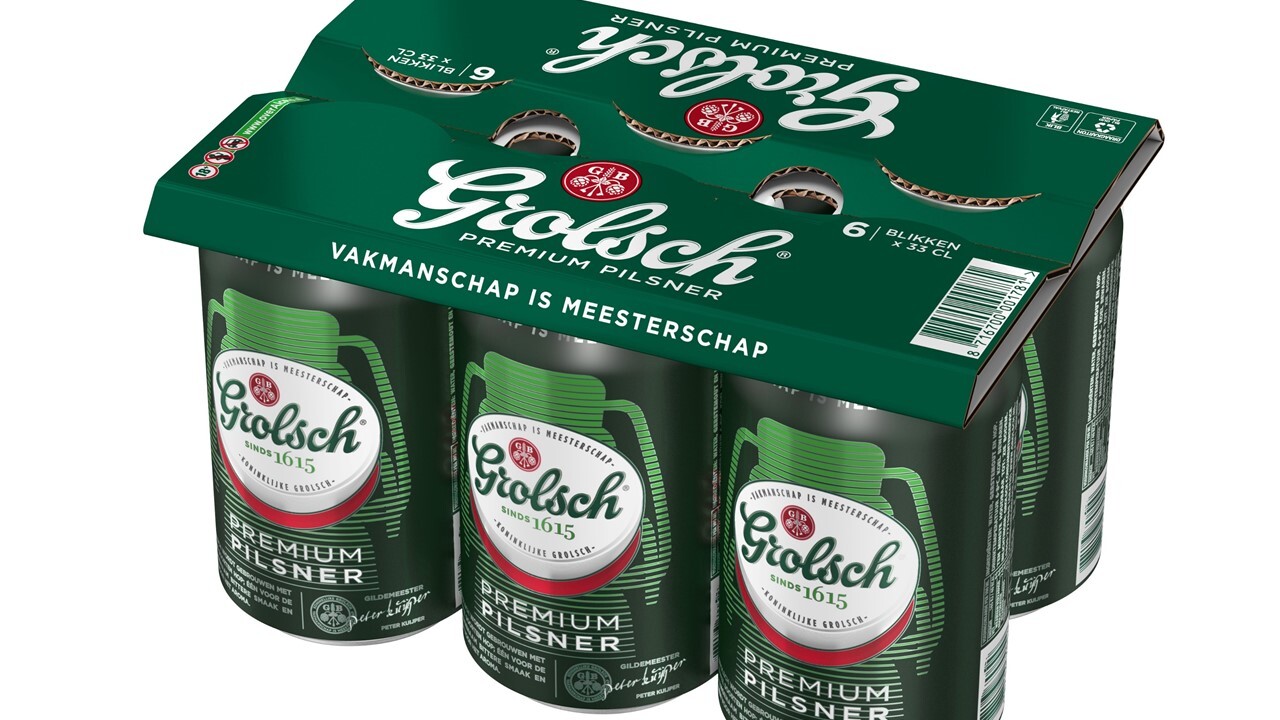Packaging protects the products we love and provides information about how to use them safely and responsibly – but packaging needs to become part of a circular economy.
We, at Asahi Europe & International have a target of achieving 100% reusable, or recyclable packaging by 2030.
And impressively, almost all key FMCG producers are aiming for 100% recyclability of their packaging portfolio. This demonstrates that recyclability has become a non-negotiable component of the consumer goods sector.
Almost all the top 100 FMCG companies (in terms of revenue) have made bold declarations and commitments to drive sustainability over the coming years.
Most of the commitments on plastics & packaging in the industry and at Asahi Europe & International focus on three areas of activity: emphasis on full recyclability and a significant higher degree of recycled content, reduction of total plastics usage and the innovation and promotion of change in the use of packaging.
Packaging is essential to secure the highest quality of beer for consumers. We want to create a future in which we will sell our products in fully circular packaging and are proud of the journey we have taken so far in this direction. 44% of the beer we brew is sold in reusable packaging, be it returnable bottles or on tap in pubs. By 2030, we will use only containers, as well as secondary packaging that is reusable or fully recyclable, and made chiefly from recycled content. But we want to do more.
We are looking for new solutions to reduce the amount of packaging used. We will continue to focus on increasing the share of reusable packaging. And last but not least, our goal is to achieve 100% recyclability of our one-way packs, both by choosing the right materials, increasing the use of recycled materials and supporting research to find innovative technology solutions.
Active cooperation with all partners, including packaging producers, retailers, waste collection and recycling systems is crucial to achieve better collection and recycling efficiency. We also want to support our customers with information to help them manage waste in order to achieve maximum recyclability within the life cycle.
The new challenges around waste management and recyclability are taking us into new and unfamiliar territory. Successfully addressing the new recyclability and waste challenges is likely to stretch the capabilities of our current tools and strategies.
Anticipating the required systemic change, we have initiated much closer collaboration with upstream players, packaging converters, and recyclers to successfully deal with these new challenges. And we are making good progress.
We are improving the recyclability of our products from a 3R perspective (reduce, reuse, recycle) and addressing all areas of our packaging including PET bottles, cans, glass, bottles, caps, labels, and cardboard boxes.
44% of the beer we brew is already sold in reusable packaging, 100% plastic free is the patented top clip packaging for can multipacks made from cardboard that we have introduced in the Netherlands, 100% plastic shrinks in Czech republic and Slovakia are fully made from recycled material.
Our brand in Netherlands, Grolsch are replacing all its plastic can carriers with cardboard packaging, launching its patented TopClip packaging for multi-packs. This new packaging is 100% plastic free, and by replacing all can carriers in the Dutch market with this cardboard equivalent, Grolsch will save more than 100,000 kg of new plastic every year, which is the same as over 4 million new plastic bags!
In Czech Republic, The Pilsner Urquell packaging has been refreshed: the plastic labels and aluminium foil have been replaced with 100% recyclable paper labels. The new bottles are more sustainable, easier to recycle and do not create unnecessary waste.
In Australia, at Carlton & United Breweries, a company under the umbrella of Asahi Holdings (Australia), ended its use of plastic rings and shrinkable films for 6-can packs of canned products in 2019. It is expected that this will result in an annual reduction of more than 30 million plastic rings and more than 248 tons of plastic shrinkable film.
These sustainability-focused initiatives around innovation and the need for change in the use of packaging are combining with other major industry trends affecting the packaging industry: for example, cost pressures, e-commerce and digitization, and shifting consumer preferences.
As a result, we, at Asahi Europe & International are beginning to experiment with complete packaging redesigns and a fundamental rethinking of their delivery chains (including circular delivery models).
Not all types of actions will have the same impact on the various aspects of the sustainability footprint (for example, low food waste versus recyclability—using a high-barrier packaging material or multilayer film can significantly increase shelf life and minimize the amount of food waste along the chain, but the packaging itself may be less recyclable).
Given that we operate in multiple countries as a global company, we acknowledge that the technical and economic feasibility varies by application as well as geographic region, and cost implications go beyond just packaging material prices and conversion costs and as a consumer product company, any change of packaging material or design has implications on overall branding strategy.
To truly achieve significant progress toward sustainable packaging, changes to the broader packaging and recycling system will be required where development and implementation costs are also much higher—and will be difficult to achieve by individual stakeholders.
These kinds of changes include improving existing recycling infrastructure, recycling technologies, and circular value chains, alongside initiatives to increase consumer awareness and drive community support for behavioural change around recycling, but also availability. It also entails developing new types of materials; involving fundamental scientific research and requiring collaboration with players in the substrate-making industries.
We have moved beyond the low hanging fruit towards the collaborations and partnerships with existing and new players in the market to explore innovative solutions to address the plastics & packaging challenge. Innovative partnerships that focus on redefining packaging for the zero carbon era will be key to us collectively overcoming the plastics and packaging challenge.

